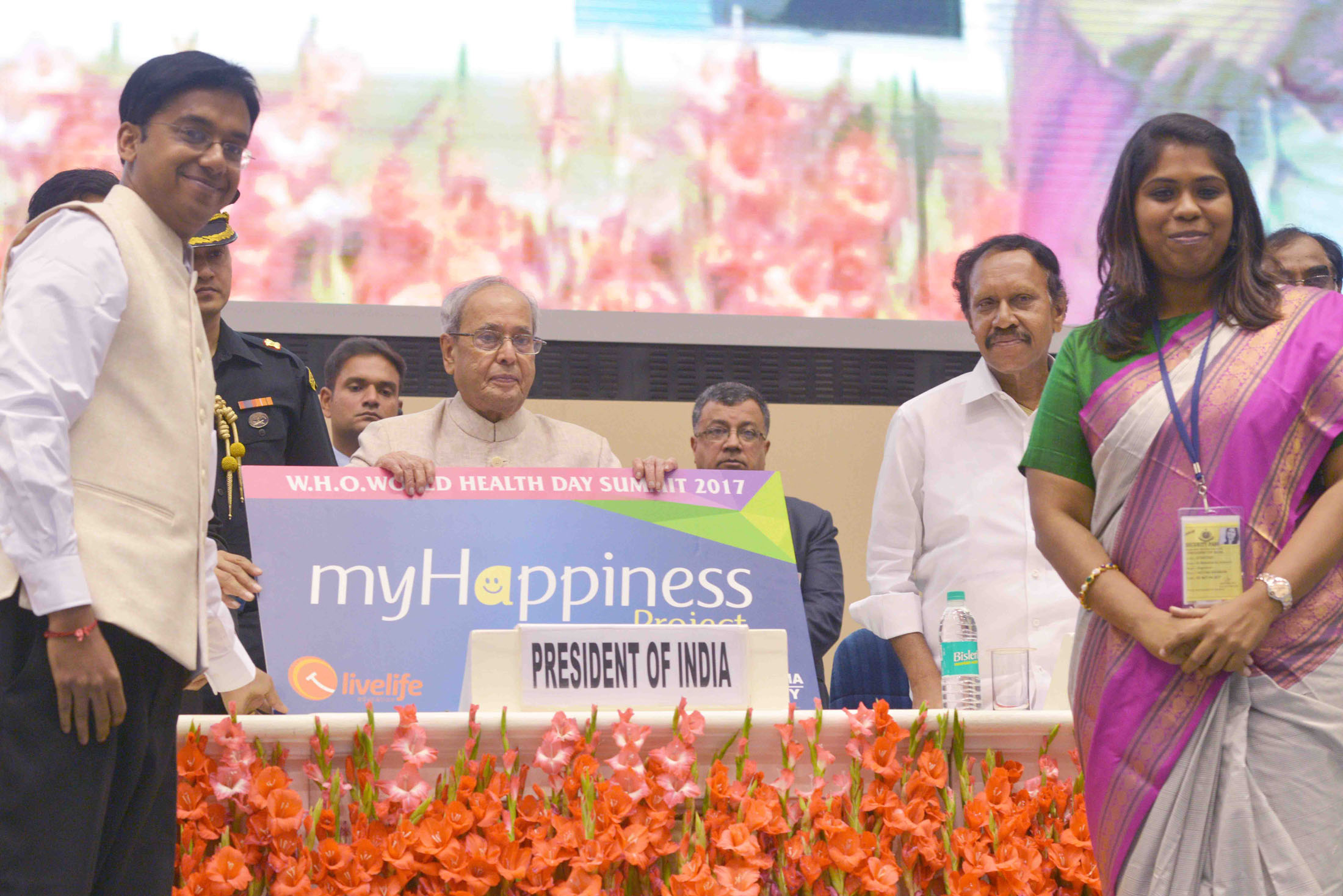
NEW DELHI, Apr 7:
President Pranab Mukherjee today said traditional Indian values and Yoga can become good mechanisms to support people suffering from mental health disorders and noted that social stigma attached to such conditions remains a “major” problem in India.
On World Health Day, which focuses on depression this year, Mukherjee said that this condition is the most common form of mental health disorders and asked medical fraternity to focus on traditional support systems, social support systems and spiritual beliefs and practices in providing wellbeing to all.
Observing that 5.2 per cent of the adult population in India suffer from depression in some form, he appealed to health professionals to “think globally and act locally” and come together to meet the challenges of depression.
“Out of all mental health disorders, depression is probably the most common. As per the National Mental Health Survey 2015-16 conducted by National Institute of Mental Health and Neurosciences (NIMHANS), 5.2 per cent of the Indian adult population suffers from depression in some form or other.
“The problem of depression often gets ignored due to lack of understanding on the part of the family members. The social stigma attached to a mental disorder is also a major problem in India. However, people have now started talking about these issues leading to greater awareness,” he said while addressing a World Health Day summit organised by NIMCARE.
He said the entire world made a commitment in the form of Sustainable Development Goals (SDGs) in which mental health and wellbeing figure prominently.
Noting that with the SDGs, countries (including India) have committed to achieve quantified targets by 2030, the President said looking at the scale of the problems and the limited time available, the task is “challenging”.
“Traditional Indian values along with family systems can be good mechanisms to support those who suffer from mental health disorders. I urge medical practitioners to focus on the social support systems, spiritual beliefs and practices as well as system of Yoga in their quest for providing wellbeing to all,” he said.
Observing that lack of mental wellbeing contributes significantly to the total disability and morbidity burden across the world, he said productivity of human beings, whether in workforce or in the family situation, gets reduced if one has any mental disorder.
Mental health disorders have a wide range, from simple disorders to very complex situations, he said adding that it is often seen that simple disorders, if not managed in time, tend to become more complex putting the patient at higher risk of morbidity.
He said there is a severe shortage of mental health professionals in India and the gap can be bridged effectively by telemedicine.
He said telemedicine application in armed forces healthcare delivery and the health monitoring of defence force personnel and their dependents is of paramount importance.
With the introduction of new norms for implementation of telemedicine for the army, accessibility to quality healthcare, specially in hilly areas of the North East will be provided, he said.
“I have no doubt that telemedicine will play a very important role in saving the lives of our jawans and provide them advanced updates on health-related issues. Telemedicine is well suited for armed forces and will significantly improve the healthcare delivery system,” he added.
Mukherjee expressed happiness that the organisers of the summit had planned strategic follow up conferences in different cities of the world to create broad framework for collective action.
“I appeal to all of you to think globally and act locally. I also urge all the health stakeholders to come together in meeting the challenges of depression,” he said. (PTI)

